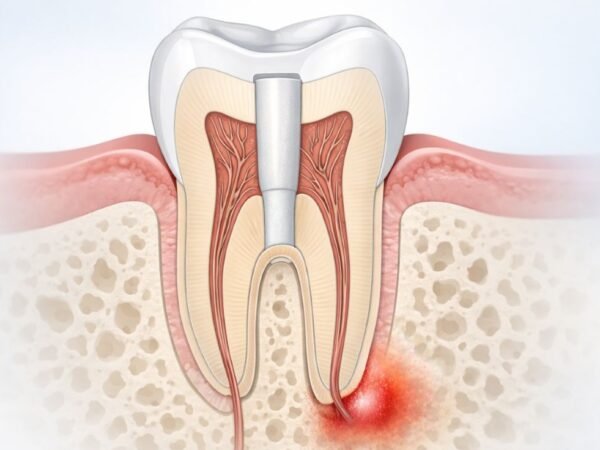Have you missed three consecutive periods in a row in your last menstrual cycle? Do you feel more pain during your periods than usual? If yes, it means that you have somehow disturbed your menstrual cycle. Yes, you heard it right.
While many factors influence menstrual cycles, including genetics, age, and medical conditions, lifestyle and diet also play significant roles. What you intake and adopt in your daily routine may greatly impact your periods.
You should know what types of activities or diets may harm your menstruation. With knowledge of such things, you can avoid affecting your menstrual health. This is what we are going to discuss in this article.
In this guide, we will discuss how lifestyle and diet affect menstrual cycles and provide tips for maintaining a healthy cycle.
Effects Of Lifestyle On Your Menstrual Health
The changes in the following lifestyle factors may majorly contribute to either improving or disturbing your menstrual health:
Exercise
The type of workout you do in your daily routine may affect your periods. Moderate exercises are good for menstrual health, while extreme ones can cause disturbance. When you engage in heavy workouts without a proper diet, your body doesn’t produce enough estrogen, which may lead to missing periods.
Stress
Stress is one of the major causes of disturbed menstrual cycles. When you go through extreme mental conditions, it leads to hormonal imbalances. As a response to stress, the release of cortisol (the body’s stress hormone) increases, which affects your reproductive hormones. Due to this, your periods may last longer or be shorter than usual.
Sleep
The quality and quantity of sleep can serve as key factors that affect menstrual health. While good sleep can contribute to maintaining a healthy cycle, poor sleep may be affected in several ways. If you sleep less than 7-9 hours, you may face severe pain, irregular periods, heavier bleeding, and other menstrual disorders.
Bodyweight
Being underweight or overweight can disturb your hormonal functions. A significant weight loss or gain within a short time may lead to a notable change in the menstrual cycle. Apart from that, in both of these conditions, the chances of premenstrual syndrome increase, which leads to stopping ovulation, anger, anxiety, and other disorders.
Impact Of Diet On Your Menstrual Cycle
What you eat can have a profound impact on your menstrual cycle. Here is how diet affects the duration of your periods.
Nutrients
The intake of nutrients plays a pivotal role in keeping the menstrual cycle on track. When the body doesn’t consume the needed carbohydrates, vitamins, minerals, and proteins, estrogen and progesterone (reproductive hormones) production decreases. Due to a deficiency of these essential hormones, you may suffer from irregular periods.
Sodium-rich And Caffeinated Foods
Salty foods and snacks can reduce the retention of water in your body, resulting in heavy bloating and pain during periods. Just like sodium-rich foods, diets with excessive amounts of caffeine can also lead to different menstruation problems. Mainly, they can intensify the menstrual cramps and shorten the cycle more than usual.
Hydration
The level of hydration significantly impacts menstrual health. Dehydration can cause discomfort during periods. Just like deficiency of hydration, excessive fluid intake can also be troublesome in some cases, especially during pregnancy. The unusual water retention in your body results in heavyening your abdomen, also called bloating.
Sugar
Excess sugar in the body can lead to increased inflammation. The more inflammation, the higher the pain intensity. Apart from that, hormonal imbalances can also occur due to overconsumption of sugar. When the level of your reproductive hormones deviates from a particular value, it either extends or shortens the length of your cycles.
Maintaining A Healthy Menstrual Cycle – Helpful Tips
When it comes to maintaining a normal menstrual cycle without any disturbance, the following practices help a lot.
Intake Nutritious Diet
As mentioned earlier, your diet may affect your menstrual health badly. So, it would be best always to be careful when taking anything. Instead of using junk foods or meals with excessive sugar, you should eat a balanced diet enriched with all your body’s nutrients. A nutritious diet will lower the pain during periods and help you avoid bloating.
Take Care Of Your Mental Health
Poor mental health is directly related to an irregular menstrual cycle, so it would be best to try to keep yourself stress-free. Good sleep can provide enough relief to stay active and avoid hormonal imbalances due to anxiety or stress. Moreover, moderate exercises like walking, swimming, and yoga can also help you reduce stress, ensuring a healthy menstrual cycle.
Keep An Eye On Your Next Menstrual Cycle
Tracking your next menstrual cycle can inform you whether a new diet or activity affects your periods. In this regard, you can get assistance from an online menstrual cycle calculator. Using a period calculator, you can estimate the expected duration of your next cycle. Knowing how long your periods will last normally can help you stay alert if your cycle takes more or less time to complete.
To Sum Up
In short, you must avoid the activities and diets that disturb your menstrual cycle. Record your cycle using a next-period calculator to check whether a new routine or food is creating trouble. It will help you avoid things that affect your menstrual health.













